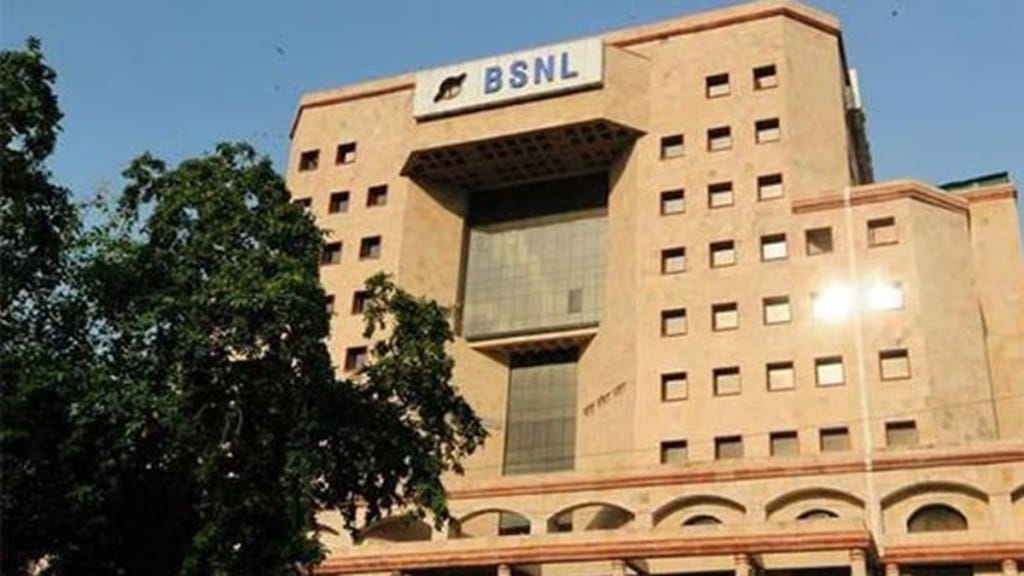The country’s largest IT services firm, Tata Consultancy Services (TCS) is expected to post a steady rise in its revenues during the July-September quarter on the back of ramp-up of the BSNL’s 4G project. However, analysts continue to remain doubtful of any meaningful recovery in growth in the US and the UK markets.
According to an average of six brokerage firms, TCS’s revenue is expected to rise 2.4% sequentially to Rs 64,081.70 crore during the quarter. In the June quarter, the Mumbai-headquartered company had reported a 2.3% sequential growth in its consolidated revenue to Rs 62,613 crore. Net profit is seen to increase 2.25% quarter-on-quarter to Rs 12,307.40 crore.
Kotak Institutional Equities has estimated that TCS will gain an incremental $55 million quarter-on-quarter from the BSNL deal, which may offset challenges in Europe and lead to some improvements in the US banking financial services and insurance (BFSI) sector.
However, they are cautious about the impact of lower utilisation rates and the shift in revenue mix towards the lower-margin BSNL contract. “Key areas of focus include the outlook in financial services, particularly regarding any shift to insourcing by large clients, and the state of demand in Europe and the UK,” Kotak said.
Phillip Capital projected a 1.7% quarter-on-quarter (QoQ) constant currency (CC) revenue growth for TCS, also attributing it to the BSNL deal ramp-up and improvements in the US banking, financial services, and insurance (BFSI) sector.
In comparison, Nuvama Institutional Equities has forecast a slightly lower growth rate of 1.3% QoQ in CC terms. They highlighted the performance of emerging markets but express concern over weak demand in developed regions.
Margin Performance
TCS’s operating margins in Q2 FY25 are expected to remain unchanged to only modest increase on a sequential basis. An average of six brokerage firms expect the earnings before interest and tax (Ebit) margin to remain unchanged quarter-on-quarter at 24.7%.
However, Kotak projected a 30 basis point increase in Ebit margin, partially due to the depreciation of the rupee. Further, Nomura said that the higher revenue from BSNL, which includes pass-through components, could restrict the margin expansion to 20 basis points QoQ.
In contrast, Nuvama Institutional Equities expectes a margin decline of around 50 basis points QoQ. They attribute this to the ramp-up of the BSNL deal, which has a lower margin profile, as well as continued weakness in developed geographies such as the US and UK.
Jefferies also sees a decline of approximately 30 basis points QoQ, linking this to the ongoing investments in learning and development and the ramp-up of the BSNL project.
Vertical Performance
Sectoral performance remains varied, with the BFSI and retail sectors showing mixed results. Kotak highlighted the need to watch the financial services sector, specifically for any market share loss to insourcing by major clients.
In contrast, Phillip Capital pointed to improvements in the US BFSI segment, though they remain wary of the outlook in Europe, despite the company’s multiple mega deal wins over the past year.
Generative AI (GenAI) continues to be a significant focus for TCS, as the company sees strong traction in this space. The company’s pipeline had increased to $1.5 billion in April-June, up from $900 million in the March quarter.
Deal Wins and Outlook
Brokerage firms also shared varied perspectives on TCS’s deal wins in the quarter. Kotak estimated deal wins of $10 billion.
Jefferies sees deal wins primarily driven by cost-cutting deals but raises questions about the sustainability of these wins in the longer term.
In the June quarter TCS saw a sharp quarter-on-quarter decline of 37% in deal wins taking the total contract value to $8.3 billion.
Further, for the remainder of FY25, brokerages are keenly watching TCS’s commentary on several aspects, including cost-cutting projects, discretionary spending, and demand trends in developed markets.
In the previous quarter, the company had said irrespective of the uncertainty, it stays committed to the 26-28% aspirational operating margin band for the fiscal year 2025.
